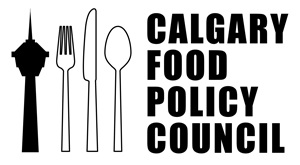Paving Paradise
Calgary City Council @ the Combined Meeting of Council 2010-02-08 will be considering
Item: 9) CALGARY PLANNING COMMISSION: CPC2010-027 AMENDMENTS TO THE LAND USE BYLAW 1P2007 (CITY WIDE) BYLAW 3P2010
This is the Calgary Food Policy Council's position on Household Food Production, Backyard Gardens, Neighbours, Vibrant Streets VS Detached Garages, Rear Garages, Backlanes, Alleys & Rear Lane.
As Calgary City Council meets on Monday, 08Feb1o to discuss Land Use vis-à-vis Infill Housing Policy, the Calgary Food Policy Council supports the high priority protection of backyards for time-honoured urban agriculture and traditional backyard household food cultivation (which in Calgary dates back to the 1800’s).
The Calgary FPC looks at the potential elimination of front driveways as a strike against the backyard garden. Some of the most fertile soil in our country is in our backyards. The prospect of redevelopment plans having to incorporate detached garages on top of these gardens is not an option the Calgary FPC supports. In addition, new developments forced to create backlanes and rear garages essentially requires citizens to 'Pave Paradise'. Other considerations are: division/separation of neighbours (from 5 down to 2), poorly maintained backlanes and additional municipal costs (including paving, snow removal) and anti-social activity (crime via obstructed rear vision from homes).
This Calgary FPC blog post, also highlights some of the fundamental issues to be considered:
Household Food Production, Backyard Gardens, Neighbours, Vibrant Streets VS Detached Garages/Back Lanes
Additionally:
Paul Hughes, Chair of the Calgary Food Policy Council today stated:
"Under current Land Use Bylaw and Infill Housing Policies, inner city communities are becoming bereft of traditional backyard gardens.”
1. City ordinances now require that vehicular access to parking and garages be located off of back alleys, in space where people were once able to grow their own food.
"We advocate an increase in urban agriculture, which is local and home grown fruits and vegetables. Back lanes, alleys & detached garages are destroying 1000’s of acres of fertile land in Calgary. We're paving paradise,”
adds Hughes.
This is in direct contradiction of the City's Triple Bottom Line requirements; a policy that requires the Social, Economic and Environmental impacts of regulations be evaluated prior to implementation. Back lanes & garages also challenge many of the assumptions in Plan It and is a flawed policy that values aesthetics over function.
“A backyard garden can easily produce over $1,000 of healthy, high quality food every year, in perpetuity and tax free. A family would require nearly $35,000 in a bank annuity to generate that income to buy the same food from a store. Why would the City of Calgary deny people the opportunity to grow their own food by insisting that double garages fill up our back yards?" Hughes asked.
2. The alley garage policy is an environmental disaster, economically foolhardy and socially counterproductive. Traditionally, citizens living in inner city communities have always had the choice of front or rear access, but no longer. Today, we are getting long, uninterrupted rows of alley garages that eliminate the possibility of natural surveillance of anti-social activity and urban agricultural opportunities. Allowing over/under garages reduces construction costs and environmental impact significantly. Over/under garages dovetail nicely with maintaining curb appeal.
Once considered assets, homeowners with front access & backyards are being forced to remove their driveways when they redevelop their property and destroy gardens.
"We advocate the freedom to choose and express one's lifestyle in the design of a home,” he said. "It's the same principal behind the freedom to express your opinion in a public forum, without the interference of government."
3. Clearly, this issue is divisive if attitudes become entrenched in ideology. The path forward is directly linked to Council Priorities, democratic principles, Land Use Policy and historical/heritage/traditional uses.
Friday, February 5, 2010
Subscribe to:
Post Comments (Atom)




No comments:
Post a Comment